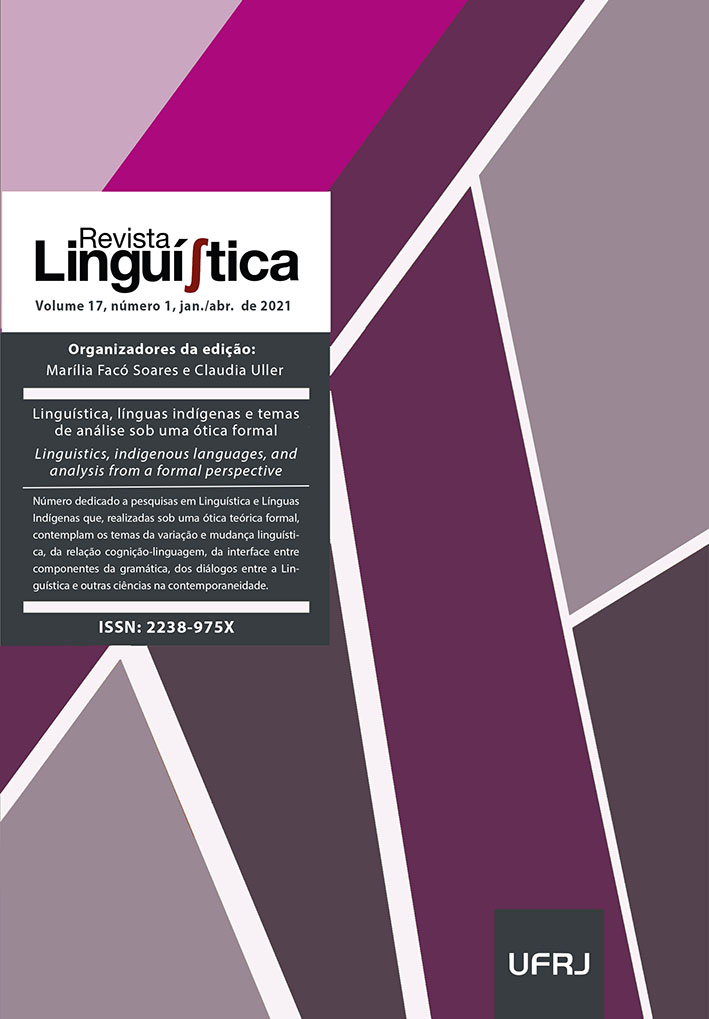Meronymy and (in)alienability in Apurinã
DOI:
https://doi.org/10.31513/linguistica.2021.v17n1a38227Keywords:
meronymy, (in)alienability, ApurinãAbstract
This paper discusses the phenomenon of meronymy in the Apurinã This paper discusses the phenomenon of meronymy in the Apurinã indigenous language (Arawak family), which corresponds to the processes involved in the expression of part/whole relationships (CRUSE, 2011). There are few descriptive linguistic works that address this issue in indigenous languages (KLEIN, 2000). In Apurinã, meronyms show specific morphosyntactic behavior, depending on the class of nouns to which they belong. Most meronyms in Apurinã are encoded in the form of inalienable nouns, which have different morphological marking patterns from those of alienable nouns, although there are cases of meronyms encoded as alienable, for example, certain parts of plants such as kawy-ry (pupunha- N.POSSD) ‘pupunha’ / ny-kawy-re (1SG-pupunha (fruit)-POSSD) ‘my pupunha’. Among the inalienable nouns, we have, on one hand, the meronyms related to parts of the body (including concepts metaphorically related to the body, and some abstract concepts), such as kanuke-txi (arm.of-N.POSSD) ‘arm (of somebody)’/ py-kanuke (2SG-arm.of) ‘your arm’, which receives the suffix -txi; and, on the other hand, we have the kinship terms, which do not receive this suffix, due to the impossibility of occurring non-possessed, as in nh-ithary (1SG-brother.of) ‘my brother’ / * ithary-txi (brother). Thus, the macro semantic domain of meronyms in Apurinã is organized in a complex (but systematic) way, and is a subject marked by a lack of studies in the context of indigenous languages.Downloads
Published
Issue
Section
License
Authors who publish in the Revista Linguí∫tica agree with the following terms:
The authors maintain their rights, ceding to the journal the right to first publication of the article, simultaneously submitted to a Creative Commons license permitting the sharing with third-parties of published content as long as it mentions the author and its first publication in the Revista Linguí∫tica.
Authors may enter into additional agreements for the non-exclusive distribution of their published work (for example, posting in online institutional or non-profit repositories, or book chapters) so long as they acknowledge its initial publication in the Revista Linguí∫tica.

The journal Revista Linguí∫tica is published by the Post-Graduate program in Linguistics of UFRJ and employs a Creative Commons - Attribution-NonCommercial 4.0 International (CC-BY-NC).









